Some years ago, myself and a very dear friend were invited to one of those high end parties, it was actually one of the best I've ever attended, albeit the particular reason it was one of my best is the same reason my dear friend will remember it as his worst party ever. Don't bother to guess what happened, I'll tell you.
We were a bit late to the party, and by the time we reached our table, some of our friends already helped themselves to various sumptuous plates of local dishes. I was about to do same when he told me I should try to be "tush"( A Nigerian word for appearing better than the norm). He said we should go for the continental dishes instead, so that we can show we are more "exposed".
Against my better judgement, and simply for what turned out to be misplaced loyalty, I agreed to do so. My dear friend didn't bother to check the menu the waitress was showing him, he simply pointed to one of the things under Continental dishes. Truly our experience that day was continental.
The dish was a very delicious one, maybe one of the best things I've ever tasted, my friend enjoyed it too, probably more than I did. And we were supposed to live happily ever after until I called one of the waitresses to ask her what made the dish that delicious, and she mentioned that it was the lard that was included. That answer looked like a harmless one, but wait until I tell you that till this day my friend hasn't forgiven me for asking that question, although I still don't know my exact sin.
I love pork, so lard wasn't a problem for me, and in case you're thinking my friend is a Muslim, I must admire your sharp mind before announcing that you are wrong. My friend's predicament is worse, he is actually allergic to anything from pigs, they act as laxative in his body system. Should I still finish the story? You certainly wouldn't want me to, and I've also decided to save you the gory details of the sufferings of his innocent toilet that whole day.
Whoever read my previous post may think I'm here to talk about food due to the confession I made in that post, however, this post has nothing more to do with food than a pilot has to do with cutlass.
We're actually here to talk about Engine Oils, and if you're thinking of asking me if that story has anything to do with Engine Oils, I'm glad to answer YES. Please allow me to explain how.
Many of us use one form of engine or the other, and these engines for more than one reason require Oils for proper functioning. So let's try to remember the last time you had to buy oil.
Here in Nigeria, if you happen to use a kind of generator referred to as "I pass my neighbor", it is very possible then that the oil you bought is that type sold from drums. However, if you bought for your car, as an educated person, you probably bought from those filling stations with different brands.
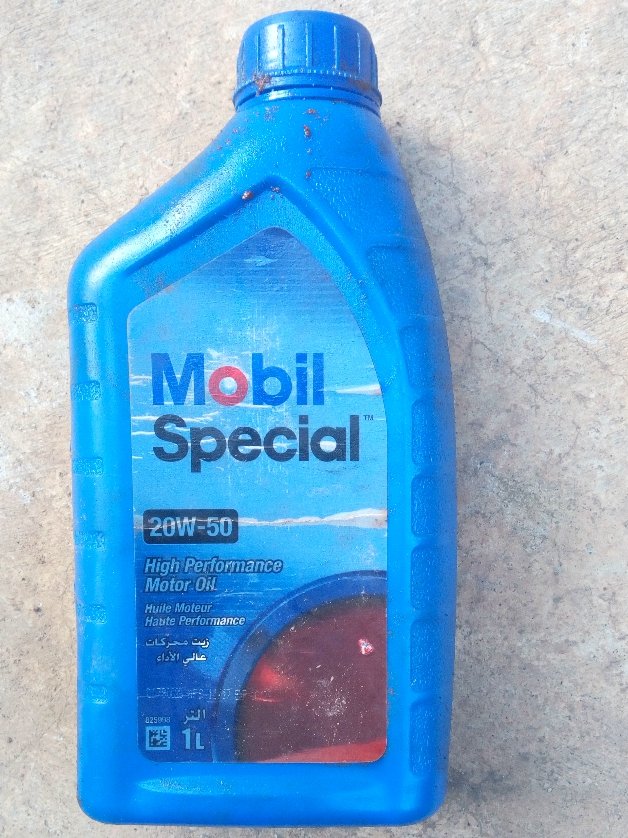
Picture taken by me @sogless
Well, the connection between this and that story is what those numbers and alphabets that are written side by side on your oil container mean, like the 20W50 in the picture to your right. These are our focus in this article, for like my friend, your "education or exposure" can actually get you into trouble, if it hasn't already been consistently doing so.
You've probably wondered why these numbers are there, their meaning and if they are of any significance, I'm dedicated to helping you in that regard with this post. However, even those that seem to know it sometimes get them mixed up, this is to remind them of the important facts.
But then, to get everything clearly, let me provide you with some information about Oils and how they carry out their job.
What are Engine Oils, and why do we need them?
Internal Combustion engines are made of several moving parts, which means that while moving during the operation of the engine, these parts will experience friction, which leads to wear and tear. Also, the combustion that happens inside the engine cylinder takes place at high pressure and temperature, which means engines experience a lot of heat.
These two conditions common to all engines are the main reasons oils are used in engine. In the first case, they are to lubricate the moving parts, so that there will be as much as possible reduction in the friction such parts experience. By doing this, they indirectly reduce the amount of power that is lost to friction.
In the second case, they act as coolants, to reduce the heat experienced by those parts, although all engines have an alternative way to ensure the cooling is efficiently done.
Engine oils are also called Motor Oil
They perform other functions in the engine like reducing the noise of the engine (still an indirect effect of reducing friction), and removing impurities from the engine into the sump, they also work with the piston rings to seal the combustion chamber.
They can come from different sources, either from Animal fat (Cod liver oil), vegetables (Castor oil, Linseed Oil) and minerals or Petroleum, with the latter being the major source for oils used in Internal combustion engines.
However, these oils come with different properties, and thus they need to satisfy certain conditions before they can be used in those engines. There are lots of these requirements, however I'll be focusing on the more important ones that are very important for the sake of this discussion.
Remember that I mentioned that most of the engine oils used in engines today are sourced from petroleum, which means they can burn if you set them on fire. Also remember that engines operate at high temperatures, therefore it is necessary that whichever oil will be used must be such that won't become vaporised to combustion at the operating temperature of engines. Such oils must behave that way at much higher temperatures to ensure safe running of the engine. This property is technically referred to as the flash point
Also, our oil is obviously liquid, and is also required to flow so that it can perform it's job. However, being a liquid, it means that it is only natural that the liquid will find it hard to flow at certain low temperatures. If that happens while the engine is in operation, then there is trouble. So, for that reason, the oils are required to be capable of flowing even at low temperatures. This property is referred to as pour point.
Another requirement is a measure of their volatility. Since engines operate at high temperatures, an oil that is too volatile will evaporate as the temperature increases, leading to a shortage of oil, and that will mean the operator has to refill oil everytime, that certainlywouldn't be interesting for his pocket. So the oils are expected to have minimum volatility.
Chief among these requirements and the focus of this whole post is the Viscosity of the Oils. That measures how Viscous the oils are and avoid any problem of ambiguity, see how Viscous is defined by a dictionary :
having a thick or sticky consistency
Merriam Webster Dictionary.
Remember that one of the main functions of oils in the engine is to lubricate the moving parts. To properly do this, the oil needs to stick to the surface of those parts. Now you may think this is not a problem if you've tried to feel the stickiness of these oils when new. They appear to be sticky enough to do the job. Well, it appears so.
However, what makes the whole situation complicated is temperature. Again, oils are liquids, and as temperature rises, they tend to heat up and expand, at such, that same oil that felt sticky earlier begins to grow thinner in response to the temperature rise. Therefore, at the high temperatures that engines operate, any oil that loses its viscosity too sharply in response to temperature or cannot maintain it's viscosity at the operating temperatures is simply incapable of helping the engine, instead great wear and tear is imminent in such engines.
High temperatures are not the only problems with viscosity, even low temperatures can be a problem here, and this is related to the pour point. If an oil quickly becomes more viscous with every drop in temperature, there comes a point where the oil will be too thick to flow to the areas where it is needed.
These two scenarios just described about the viscosity of engine oils is the reason why you find those numbers on your engine oil containers and they are the key to helping you avoid turning out as my friend did at that party. How so?
The Help of Additives.
To ensure that Engine oils posses the required attribute which they may not readily exhibit enough naturally, they are mixed with different additives to boost these properties in them.
For example, there are additives known as Anti-oxidants which reduce the tendency of the oils to get oxidized. Rust inhibitors are also added to reduce the oxidation of the metal parts, thus preventing corrosion.
Also detergents are added to these oils to clean the oil of impurities. And in the case of oil contaminants that can coagulate in the oil and cause problems, dispersants are added to ensure that the contaminants are forever suspended.
Now before we forget why we are here - the numbers on those containers, yes I didn't forget - just like there are additives to boost all these properties, there are also additives referred to as Viscosity modifiers to prevent the oil from getting thinner at high operating temperatures. Also, there are additives known as pour point depressants which lower the temperature at which the Oil refuses to flow, therefore making it more suitable even at lower temperatures.
So where did the numbers enter the story?
One summary you can get out of my explanation about the additives is this : you and I can be given the same base Oil (after refining) to start with, however the type of addititives I choose to add to my own base Oil and the differing amount of such various addititives determines how differently mine will perform when compared to your own oil (after you must have added your choice and amount of additives).
This the same thing that happens in factories where our dear engine oils are manufactured. There is a base oil to which different additives are added in different amounts, allowing for varying properties of the oils to suit various engines, because realistically what engine A requires isn't exactly what engine B requires (there are enough engines in the world to ensure that).
Be that as it may, you and I can't just see an engine oil and say the types of additives in the oil, and remembering that the particular property we're focusing on is Viscosity, we have neither the materials nor the expertise to test for these properties before choosing which suits our engine. Or am I just speaking for myself?
Well, we have serious friends at the Society of Automobile Engineers (SAE), and they help us by carrying out these tests for us and putting the results on those containers for us to see, so that we can know the viscous properties of the oils we are about to use. Yes, all this while they've been reaching out to you with those numbers to pass that message, but understandably, language has been the barrier, so you can as well call the rest of this post a language class 😉.
They carry out these tests in two different ways.
Firstly, there is a system of testing the dynamic viscosity of the oils at different low temperatures on a particular scale, starting from the top of the scale, the lower an oil can go on that scale without failing the test determines what designation it gets. Under this system, the oils are referred to as Winter grade oils, which is the reason you find that W at the end of some of those numbers.
On this scale, you have six oil grades (also known as Winter grades), and here they are in ascending order 0W, 5W, 10W, 15W, 20W, 25W. To put this into perspective, an oil designated 10W can still perform well at much lower temperatures than a 15W oil, but same 10W still can't withstand the kind of low temperatures that a 5W oil will conveniently withstand. And on this evidence, at the lowest temperatures, the 0W oil will perform best.
The other system deals with the viscosity at high temperatures, and thus measures the viscosity of the oils at 100 °C (212 °F), to see which of the predetermined ranges of viscosity the oil will fall into. On this scale, there are five designations to describe the oils. These are 20,30,40, 50, 60. What this means in essence is that an oil with an SAE 40 tag is more viscous than an SAE 30 oil but no as viscous as an SAE 50 oil.
Add the first six to the latter five and we have eleven oil grades. Any oil that is tested and designated this way is referred to as a Single grade Oil. The container will show you only one of the eleven grades listed above. So that means, under this system, you can only be informed about how the oil performs at either high temperature or low temperature.
In a more realistic sense though, there can be great variations in an engine's operating temperature while it is still using the same oil, for example the temperature when you want to start your car on a cold winter morning compared to the temperature when your engine is in full operation under the afternoon sun.
A single grade knowledge of the oil will not be enough to determine the best oil for this situation. and for this reason we have the Multi-grade oils. These oils have additives known as Viscosity index improvers (although not always), such that the oil can be seen as a 2in1 oil. One that can perform at its normal properties when temperatures are low and still behave like another oil with higher viscosity when the temperature gets higher by maintaining high viscosity at such temperatures.
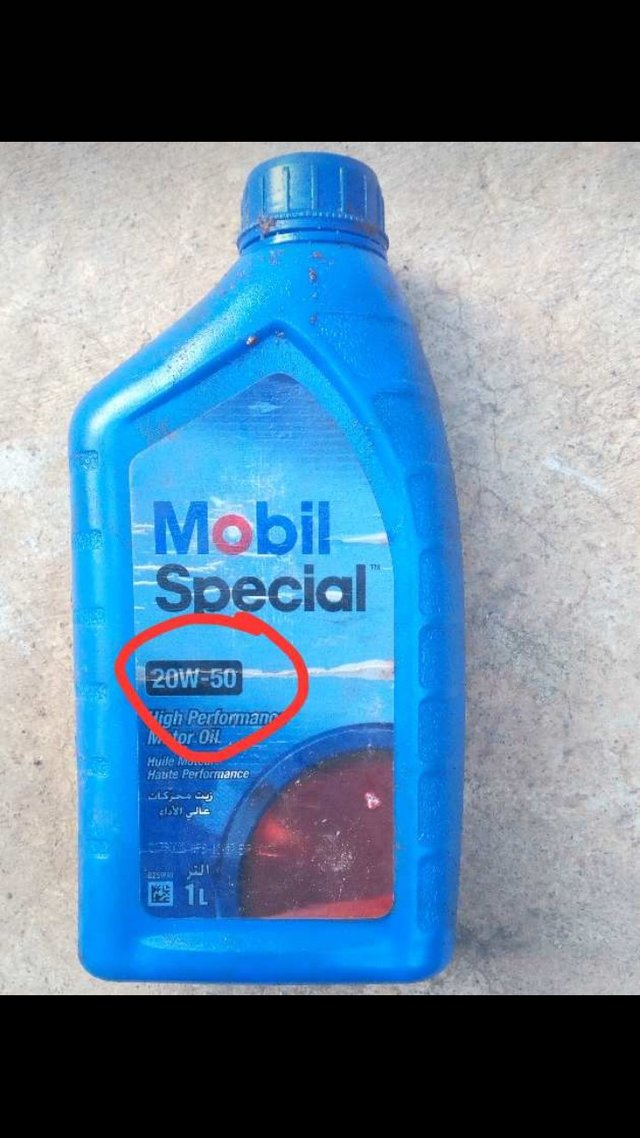
Picture taken and modified by me @sogless
Therefore these oils are described with grade numbers that show how they behave at low temperature and high temperature. It is on these kind of oils that you find designations like 20W 30, telling you that the oil behaves like a 20W oil at low temperatures and at high temperatures it has the viscosity of an SAE 30 oil.
In case the oil language still sounds foreign, try this interpretation. The manufacturer of your engine knows the optimum operating temperature of your oil and at such included the best kind of oil for your engine under the SAE grade. So the best thing to do is to either check your engine manual or search online for your engine model to know which best suits your engine.
Oils with designations from SAE 60 upwards are not engine oils, they are gear and transmission oils.
CONCLUSION
Knowing the best Oil grade for your engine is the key to avoid being like my friend mentioned earlier. His crime was not that he abandoned the local and much more available dishes and decided to choose continental dish, his mistake was that he failed to check the constituents of the dish so as to determine if the dish is suitable for him.
In the same way, many of us here know that it is not advisable to buy those roadside oils from unknown sources, but then we can still choose the wrong oil from the approved dealers if we don't know the requirements of our own engine. To make this clearer. If you are using an SAE 20 oil for an engine that requires SAE 50, the implication is that as soon as the temperature of the engine rises, the oil becomes too thin to lubricate the engine parts, thus leading to great wear and tear. Also, buying an SAE 50 oil for an engine that requires SAE 20 is simply a waste of money.
So, many of the times you've had to replace a worn engine part in your vehicle, the times your engine had to be "ringed", or the times your small generator had it's worn out parts replaced has most likely been because you were using the wrong oil.
Using the wrong oil comes with other dangers, there is the reduced fuel economy as the engine burns more fuel, your car engine will also pose a bigger threat to the environment with its emmision. Also, because your manufacturer expects you to comply with specifications, any damage to anew car caused by using the wrong oil voids the warranty.
Therefore, don't be like my friend, know the oil grade your engine requires and give it same, of course those living in the temperate regions have to worry more about the W grades for the oil at low temperature while those of us in the tropics need to focus more on the high temperature designation.
My friend's name is Michael, he resides in a quiet village very close to Lagos with his family, he no longer consumes anything until he has understood its label.
REFERENCES
- Motor Oil
- How Viscosity is measured
- How to pick the right motor oil for your car
- What engine oil is good for your car
If you write STEM (Science, Technology, Engineering, and Mathematics) related posts, consider joining #steemSTEM on discord here. If from Nigeria, there may be need to include the #stemng tag in your post. You can visit this blog by @stemng for more details. You can also check this blog post by @steemstem here and this guidelines here for help on how to be a member of @steemstem. Please also check this blog post from @steemstem on proper use of images devoid of copyright issues here
Would you like to delegate to the @steemstem? Here is a link below
50 SP | 100SP | 500SP | 1,000SP | 5,000SP | 10,000SP | 50,000SP

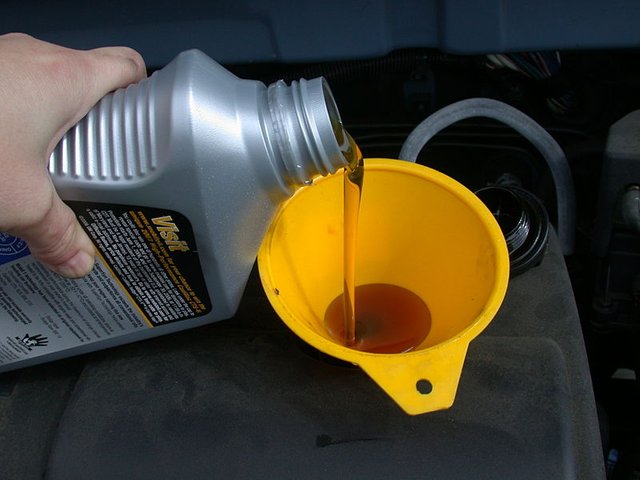
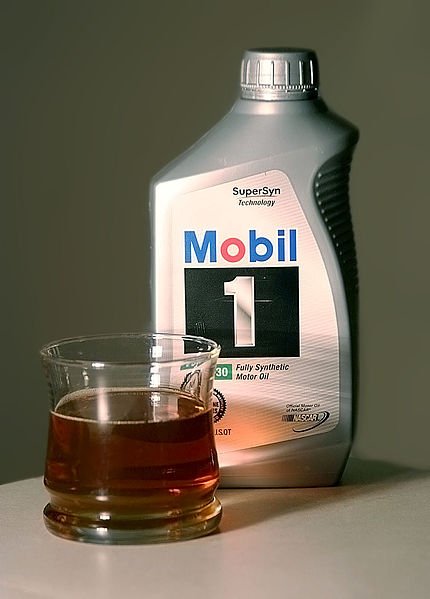
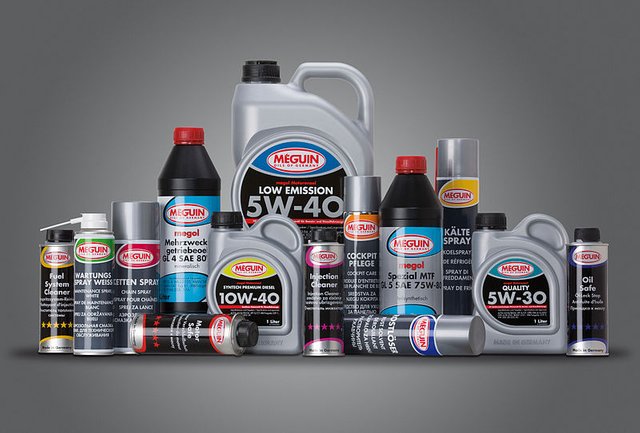
Wow!wow!!wow!!! Nice one bro. I never thought about this before until I went through this right up even thou I know that knowing the right oil to use is best and also keeps the engine of whatsoever you use going .
Downvoting a post can decrease pending rewards and make it less visible. Common reasons:
Submit
It is very important that we help those engines by giving them the right oil grades as and when due. Thanks for reading.
Downvoting a post can decrease pending rewards and make it less visible. Common reasons:
Submit
Sincerely, you spoke to me all through in this post - don't get me wrong, I don't "leap" without "looking".... My case here is my research work, up till now has everything to do with lubrication... Let me say I knew the SAE gradings but I never knew about the direct relation with temperature even though I had a table of property showing the trend of change of property mirroring your analysis....
I should be caned! But then, I'm a steemian, a proud member of the stem community and I have good writer friends like @sogless to rescue me.
Well-done once again. You did deserve some accolade.
Downvoting a post can decrease pending rewards and make it less visible. Common reasons:
Submit
Truth be told, sometimes in the past I mistook a single grade oil for an adulterated oil. Knowledge has several facets and one must keep improving on all facets.
Your posts are always interesting to read too, one if the blessings of being a steemstem member, always great to have you around.
Downvoting a post can decrease pending rewards and make it less visible. Common reasons:
Submit
Thanks for the kind words
Let's keep learning!!
Downvoting a post can decrease pending rewards and make it less visible. Common reasons:
Submit
This is really a nice post. Apart from the fact that buying an SAE 30 oil for an engine that requires SAE 20 is a waste of money. Are there other effects that the oil can possibly have on the engine considering the closeness of the numbers?
Kudos bro. You had me glued all through. Hope you won't mind if I pm you for the rest of that story. Lol
Downvoting a post can decrease pending rewards and make it less visible. Common reasons:
Submit
SAE 30 is thicker than 20, and that means you are making your crankshaft travel through a thicker oil unnecessarily, this will have effect on your fuel economy and power, no matter how little.
If you're really interested, please PM me, but remember you've been warned....
I'm glad you enjoyed it, thanks a lot for your very encouraging comment, always a pleasure to have you here.
Downvoting a post can decrease pending rewards and make it less visible. Common reasons:
Submit
Hi @sogless!
Your post was upvoted by utopian.io in cooperation with steemstem - supporting knowledge, innovation and technological advancement on the Steem Blockchain.
Contribute to Open Source with utopian.io
Learn how to contribute on our website and join the new open source economy.
Want to chat? Join the Utopian Community on Discord https://discord.gg/h52nFrV
Downvoting a post can decrease pending rewards and make it less visible. Common reasons:
Submit
Knowing the right oil to use for engine is definitely key, you can't go about doing trial and error.
To be able to keep the reader engaged at this length of this post is nothing but remarkable.
Downvoting a post can decrease pending rewards and make it less visible. Common reasons:
Submit
I'm very encouraged by this very positive comment, thanks a lot. I'm glad you're always here to read and drop a comment.
Downvoting a post can decrease pending rewards and make it less visible. Common reasons:
Submit
Sincerely, the talk about engine oil grades is a very important one that car owners sometimes ignore. Even ehrn the oil grade is clearly written on the cap of the engine oil refill point, they still proceed to buy the wrong ones or anyone available.
buying the right oil saves a lot of stress and money too
say me hi to michael.
Downvoting a post can decrease pending rewards and make it less visible. Common reasons:
Submit
People don't usually pay attention to the most important things, but I suppose we have to continue reminding, and in this case explain to them what they may not readily understand.
I'll extend your regards to Michael. Thanks for stopping by.
Downvoting a post can decrease pending rewards and make it less visible. Common reasons:
Submit
Oil certainly plays an important role in achieving the best of engine performance. Wrong choice of oil is one of those which wears out engine so fast, in which people pay less attention to. It's so good to adhere to the vehicle manufacturer's specification for the grade of oil recommended. It goes a long way in engine durability.
Beautiful write-up I'd say..Thanks for the insight into the gradings
Downvoting a post can decrease pending rewards and make it less visible. Common reasons:
Submit
Mist of the wear and tear our engines suffer are totally avoidable, if only we know the required oil and stick to it. Thanks for caring enough to drop a comment.
Downvoting a post can decrease pending rewards and make it less visible. Common reasons:
Submit
Thanks a lot for this write up. Was indeed enlightening
Downvoting a post can decrease pending rewards and make it less visible. Common reasons:
Submit
I'm happy I could pass something across.
Downvoting a post can decrease pending rewards and make it less visible. Common reasons:
Submit
hope Mobil will pay you for advertisement? (referring to your first image).
Downvoting a post can decrease pending rewards and make it less visible. Common reasons:
Submit
I was thinking of blurring that part o
Downvoting a post can decrease pending rewards and make it less visible. Common reasons:
Submit
Hello! I find your post valuable for the wafrica community! Thanks for the great post! @wafrica is now following you! ALWAYs follow @wafrica and use the wafrica tag!
Downvoting a post can decrease pending rewards and make it less visible. Common reasons:
Submit
the first time I came across these oil numbers was during an exam. I didn't read that part of the note. The question was so confusing that I had to skip it only to realize it was one of the simplest things.
if only i read this post then.
Downvoting a post can decrease pending rewards and make it less visible. Common reasons:
Submit
If only, my brother, but knowledge is never too late, it's one of the things you don't even have to think about anymore. Those were the days that molded you into the mechanical engineer we're blessed with today.
Downvoting a post can decrease pending rewards and make it less visible. Common reasons:
Submit
You've said it all, I once experienced this sometime ago while travelling. I'd to search for this oil round my town, when I didn't see it, I just have to settle for what will be good for the engine.
Here,the problem is the scarcity of this type of oil, and at times quantity.
In market today,once people were unable to see their desire oil( perhaps its scarce) they settle for what they ought to good for the engine without looking at the number.
Downvoting a post can decrease pending rewards and make it less visible. Common reasons:
Submit
I experienced something like that when I travelled to Delta, good oils were just not available. But in those cases, one has to use the one that appears best, and then drain the oil sump as soon as you can get a good oil.
Thanks for stopping by.
Downvoting a post can decrease pending rewards and make it less visible. Common reasons:
Submit
Lubrication is by far a very important aspect of any machinery with moving parts. In automobile engines for instance, there's a stringent requirement for the lubrication of the bearings. Too thin oil can't hold surfaces apart and too thick oil wouldn't reach the interface in question. You have done a great job in educating us on this. It's left to every owner to get the numbers right.
Well done sir!
Downvoting a post can decrease pending rewards and make it less visible. Common reasons:
Submit
I love your important contribution. Always a pleasure to have you around.
Downvoting a post can decrease pending rewards and make it less visible. Common reasons:
Submit
This is quite explicit. Simple to the core. Now, i know what i must go for for my automobile.
But do generators have specific oils too?
Downvoting a post can decrease pending rewards and make it less visible. Common reasons:
Submit
Generators are also among the engines I referred to in the post. They also have their specifications written on their manual, but still in this same system. In fact, the picture at the beginning of the post was used for a generator.
Downvoting a post can decrease pending rewards and make it less visible. Common reasons:
Submit
I find delight in posts about automobile cus I'm studying mechanical engineering, nice post there
Downvoting a post can decrease pending rewards and make it less visible. Common reasons:
Submit
Awesome, you may also want to visit @rharphelle, @temitayo-pelumi and @adetola's blog's more.
Downvoting a post can decrease pending rewards and make it less visible. Common reasons:
Submit
These numbers are the viscosity index which is defined in tribology charts. These numbers ensure you to have consistent oil at all possible temperatures.
W is winter for sure. If you are not living in an African country or in Russia or Norway, you don't need to be careful about the numbers. Any product will be fine. If you know the exact numbers suggested by the manufacturer, you should follow them of course...
Don't hesitate to use any kind oil if there is a leak or something which cause running out oil.
Downvoting a post can decrease pending rewards and make it less visible. Common reasons:
Submit
Never had a reason to ponder over the numbers until now. Such a good and informative post.
Downvoting a post can decrease pending rewards and make it less visible. Common reasons:
Submit
Thank you very much.
Downvoting a post can decrease pending rewards and make it less visible. Common reasons:
Submit
I love the way you crafted around this article. Its simplicity is dope. A layman will first think the number written is like a compass sign. 30° west and blah blah blah. I really learnt and enjoyed this post. Well done bro
Downvoting a post can decrease pending rewards and make it less visible. Common reasons:
Submit
Allow me to laugh first... Thank you for your nice comment. I'm glad you enjoyed it.
Downvoting a post can decrease pending rewards and make it less visible. Common reasons:
Submit